Some people’s brains work differently, but that doesn’t mean that they should be treated fundamentally differently from the rest. While neurodiverse people often require support and understanding, overly special exceptions and privileges reinforce misconceptions about them that can limit their growth.
This man treated his neurodivergent friend just like anyone else by setting boundaries whenever he felt he needed them. But since the buddy was on the spectrum and struggled with that, it was harder to do so. Recently, he shared how he was pushed over the edge by it and even got shamed by his friends for it.
Scroll down to find the full story and conversation with Dr. Amy Nasamran, a licensed psychologist and founder of Atlas Psychology, and Dr. Matthew J. Zakreski, founder and lead psychologist at The Neurodiversity Collective, who kindly agreed to tell us more about neurodivergent people and boundaries.
Boundaries are important in any relationship

Image credits: seventyfourimages / envatoelements (not the actual photo)
This man was unfortunately pushed over the edge when the boundaries he set with a neurodivergent guest were completely ignored

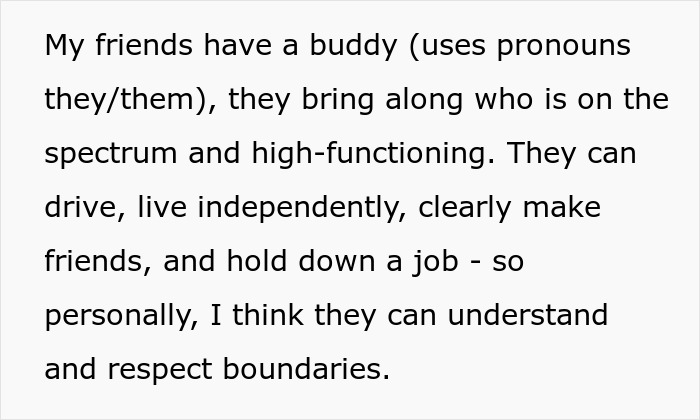


Image credits: gstockstudio / envatoelements (not the actual photo)






Image credits: freepik (not the actual photo)

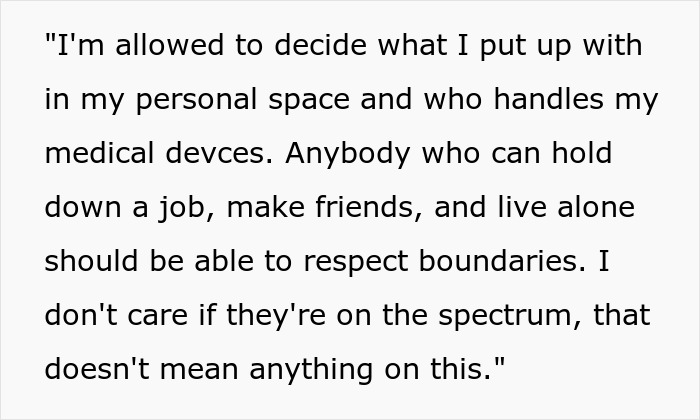

Image credits: Cat_of_the_woods
It’s necessary to teach neurodivergent people where typical boundaries are

Image credits: freepik (not the actual photo)
Both our interviewed experts agree that boundaries are important when interacting with neurodivergent people.
“Some neurodivergent brains really appreciate clear and concrete information, as this helps them understand and know exactly what’s expected of them in a given situation, and neurodivergent brains often love to follow clear rules and boundaries,” says Dr. Amy Nasamran, a licensed psychologist and founder of Atlas Psychology.
“Additionally, sometimes a neurodivergent brain is working on overdrive—or it requires a lot of effort—to try to figure out language, social cues, and social expectations. So boundaries help make these expectations clear, give neurodivergent brains concrete expectations to follow, and help protect needs, space, and respect for everyone involved.”
In a world where most unwritten and written social norms are tailored for neurotypical people, it’s necessary to teach neurodivergent people where typical boundaries are drawn and why they exist, says Dr. Matthew J. Zakreski, founder and lead psychologist at The Neurodiversity Collective. “When we have healthy, appropriate, and clearly stated boundaries, it helps all people involved have a better, safer relationship.”
Some people might be hesitant to set clear boundaries with neurodivergent people because they’ve been socialized not to ask the hard questions and be polite, even at the cost of their comfort, notes Dr. Zakreski. But with neurodivergent people, they have to get out of their comfort zone and communicate their needs directly, as a more blunt style of communication works more effectively with them.
Once a boundary is clear, a neurodivergent brain sticks to it

Image credits: EyeEm / freepik (not the actual photo)
To ensure that a boundary is clearly communicated to a neurodivergent person and understood by them, Dr. Zakreski advises avoiding any ambiguities like slang or metaphors, as they can be easily misinterpreted.
“The biggest thing with neurodivergent people is to ‘say what you mean and mean what you say.’ For a neurodivergent person, who tends to be more concrete in their thinking and language usage, the direction ‘sit down’ could be read as ‘sit down exactly where you are.’ And if they do so, it can create a power struggle with the person in charge, because now we’re arguing about semantics (the implied meaning of something) rather than the words themselves,” he further explained.
“You can avoid many of these challenges by being very clear in your communication and avoiding slang, metaphor, and other verbal shortcuts until you’ve assessed how much of that kind of language this person can use. And when you do make a mistake, be authentic and own the confusion and talk about how you can both do better next time.”
“Sometimes neurodivergent brains don’t pick up on subtleties, social cues, body language, or facial expressions as quickly as we might expect, so instead of hoping for them to read between the lines, sometimes it is more helpful to clearly state the boundary you are trying to communicate using clear expectations and language,” agrees Dr. Nasamran. Once a boundary is clear, a neurodivergent brain sticks to it, as they really tend to appreciate and adhere to ‘rules.’
While setting boundaries, Dr. Nasamran also recommends avoiding criticism, shaming, or blaming. “Neurodivergent people have big hearts, and they often care a lot about their relationships with others, so if they’re crossing boundaries, they’re likely unaware of it or how it’s affecting you. I’m also willing to bet they have already thought a lot about how to behave, what to say, and how to interact in that situation, so they are not maliciously trying to cross a boundary. They need further and clearer direction from you.”
A relationship with a neurodivergent person can be full of trial and error, but it’s important to approach it with positive intent. “Guide and teach them; call them in rather than calling them out. No one has ever been shamed into long-term growth,” concludes Dr. Zakreski.
Commenters thought the original poster’s behavior was justifiable



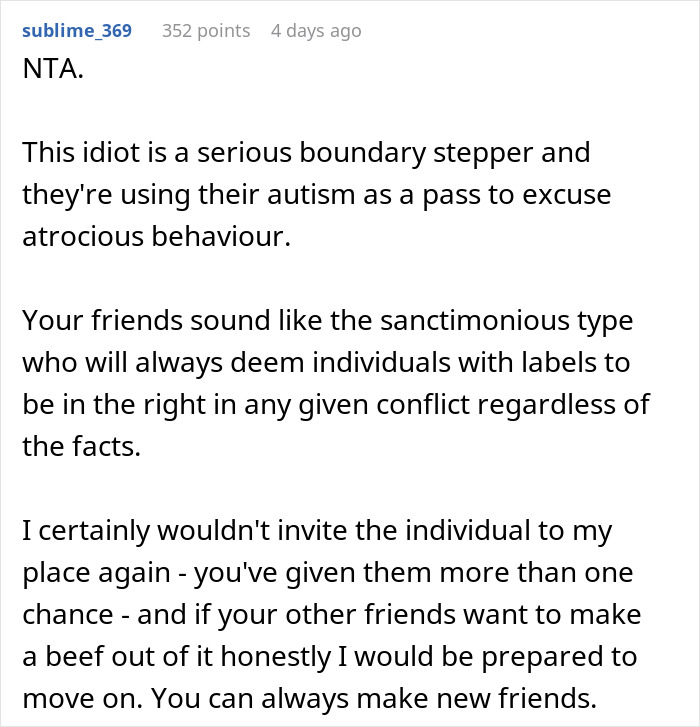
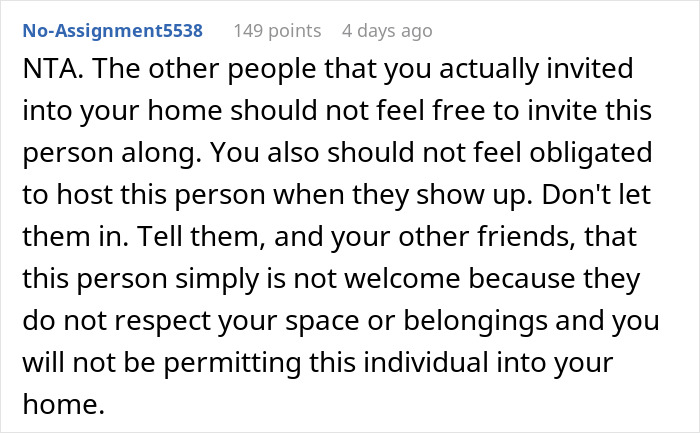




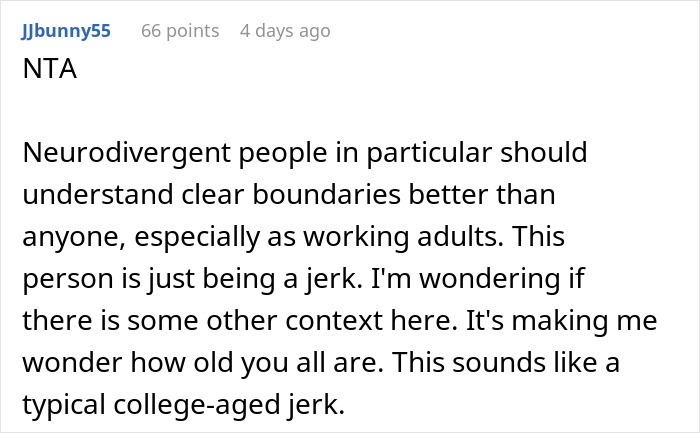
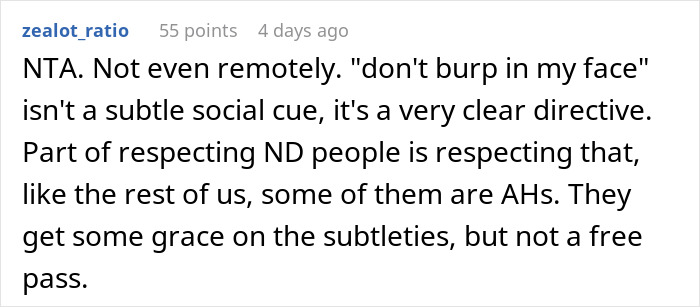
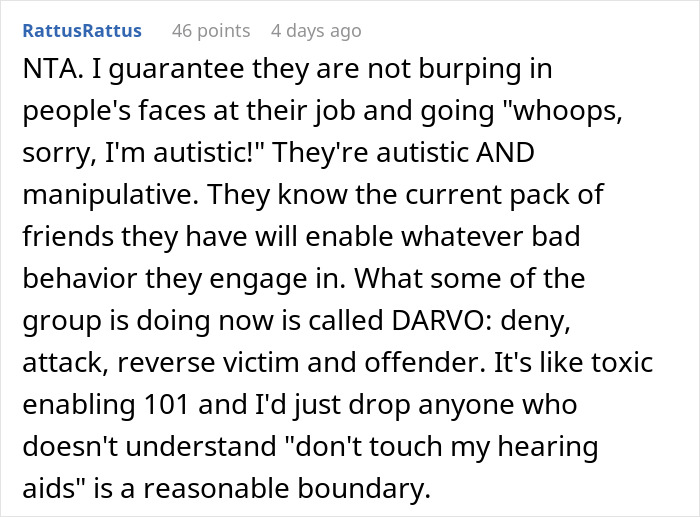




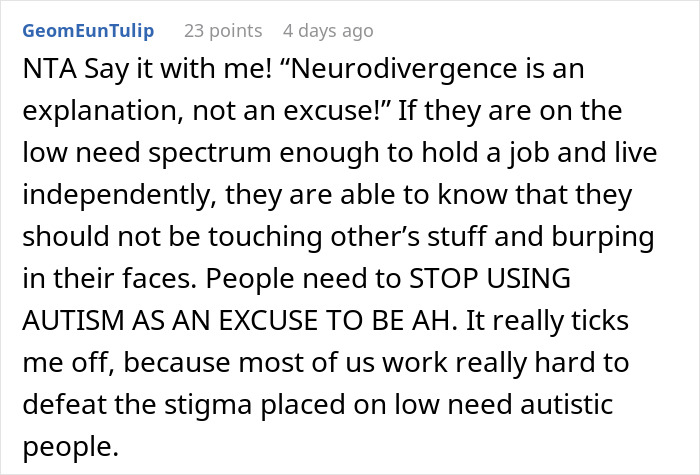


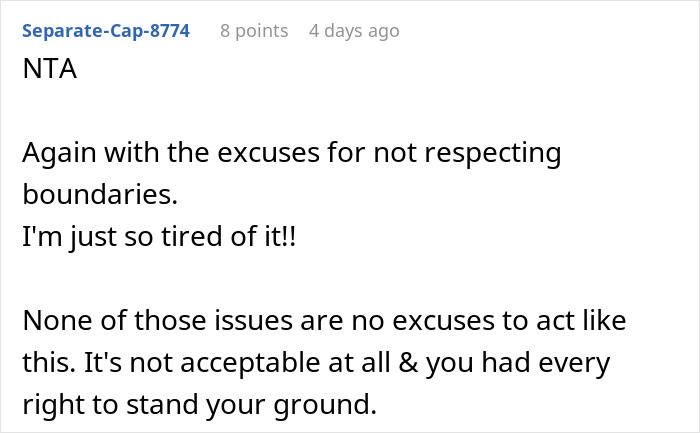


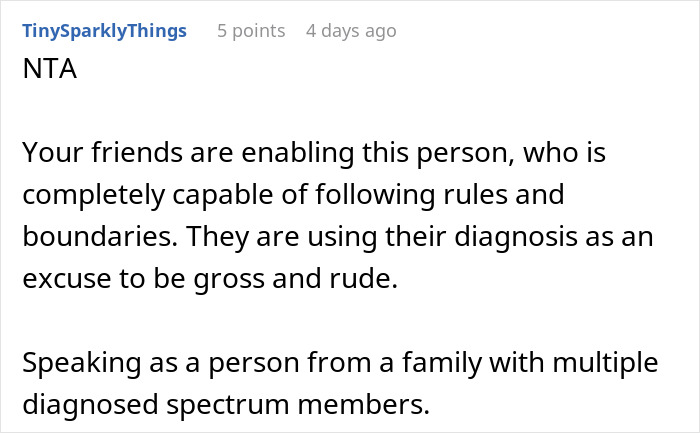
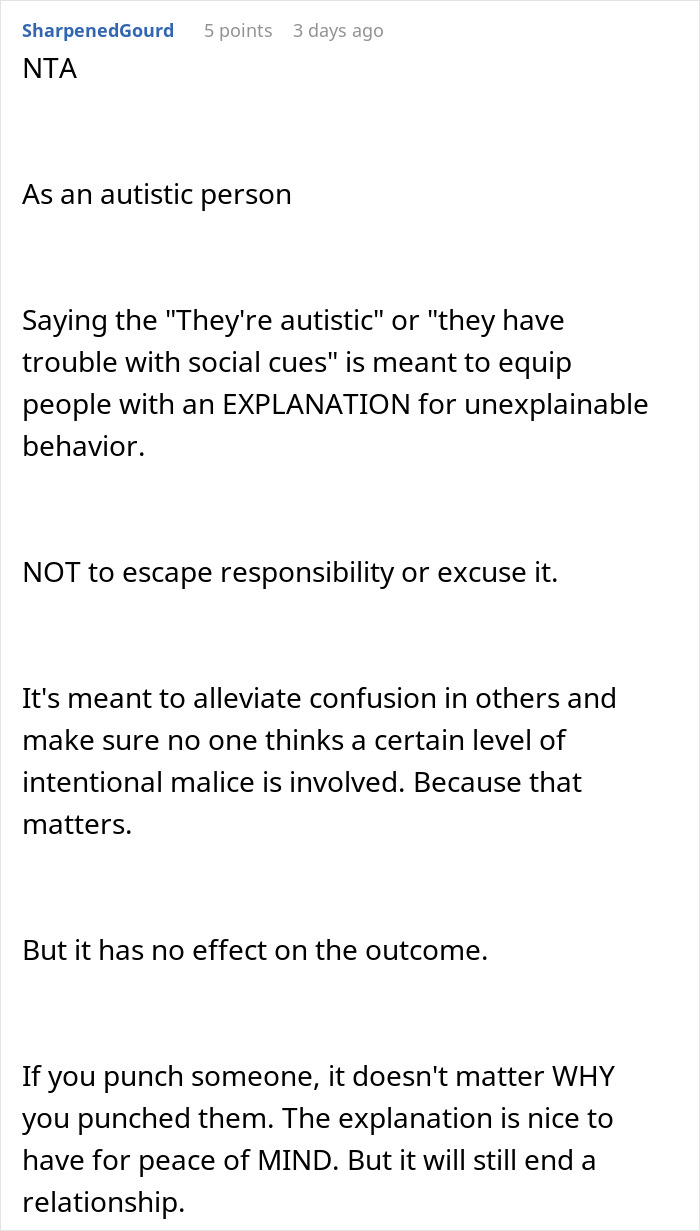
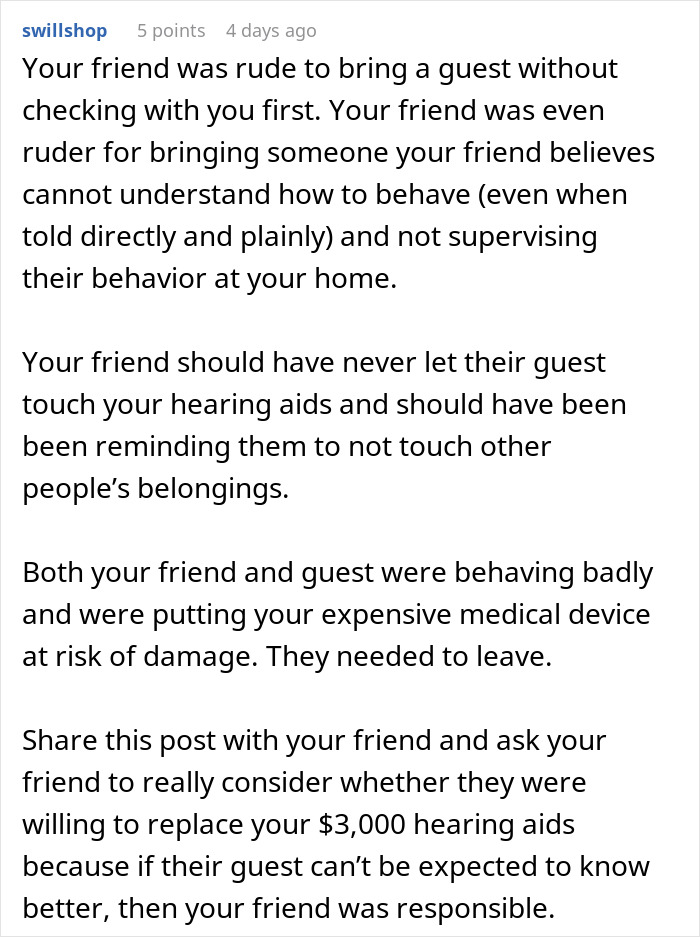


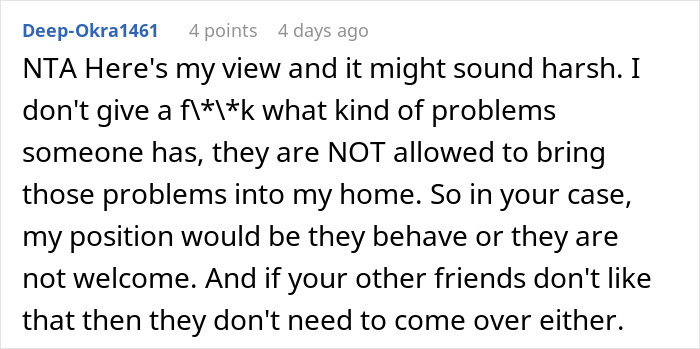
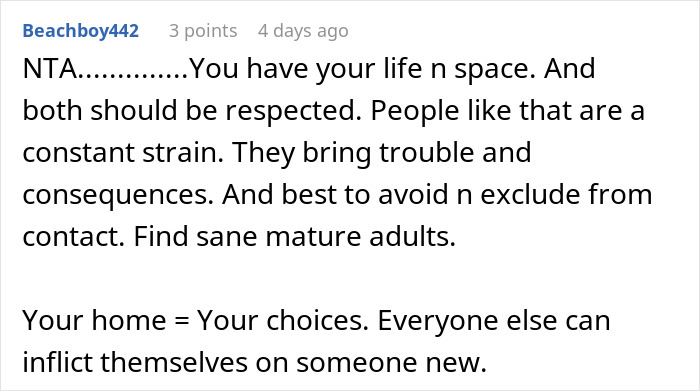

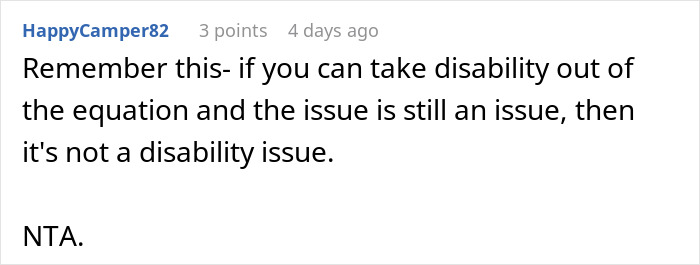
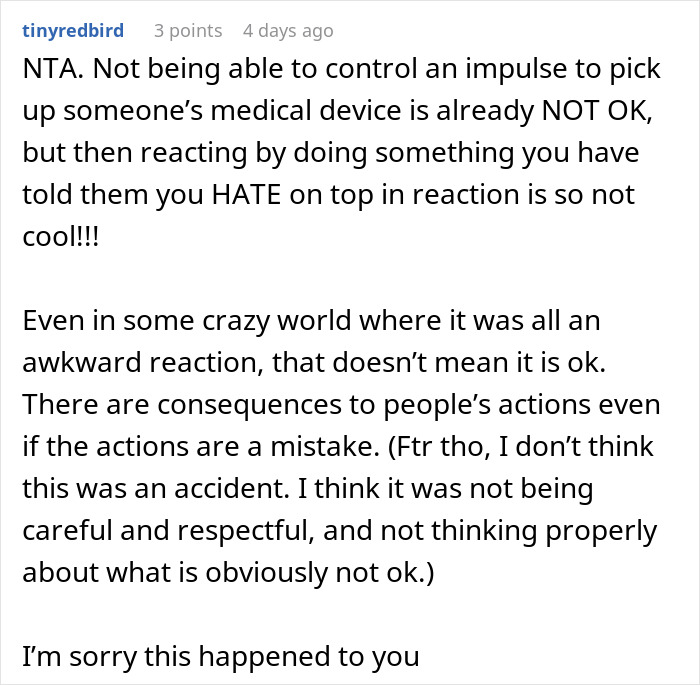

Some also shared similar stories

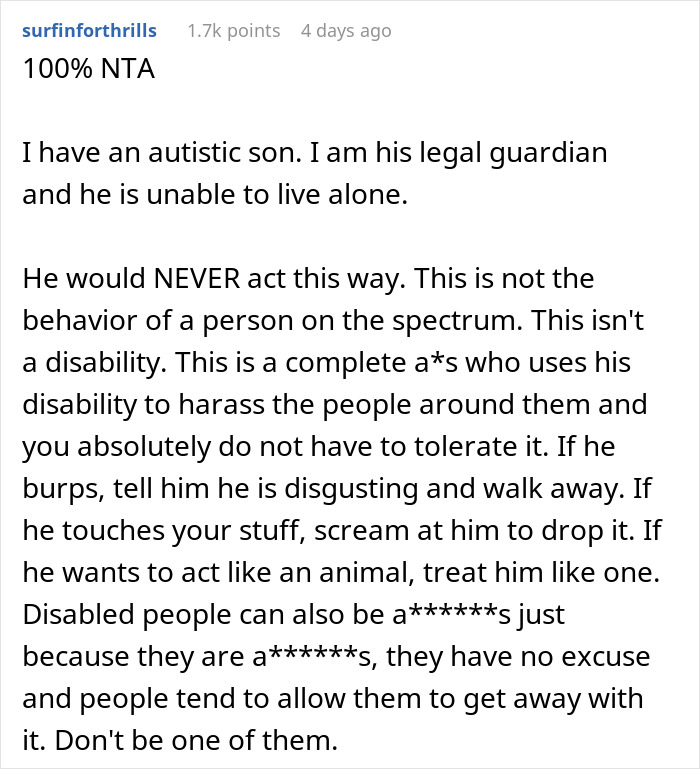


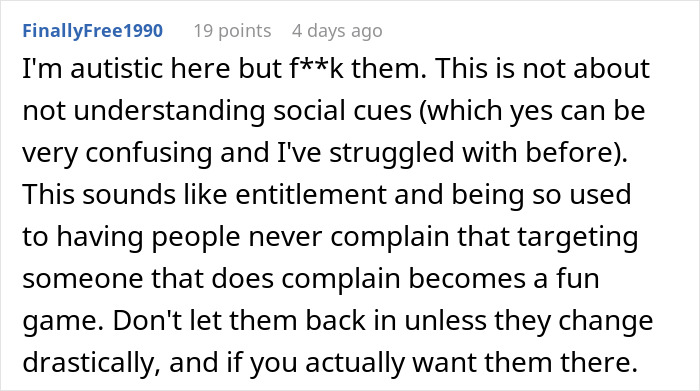

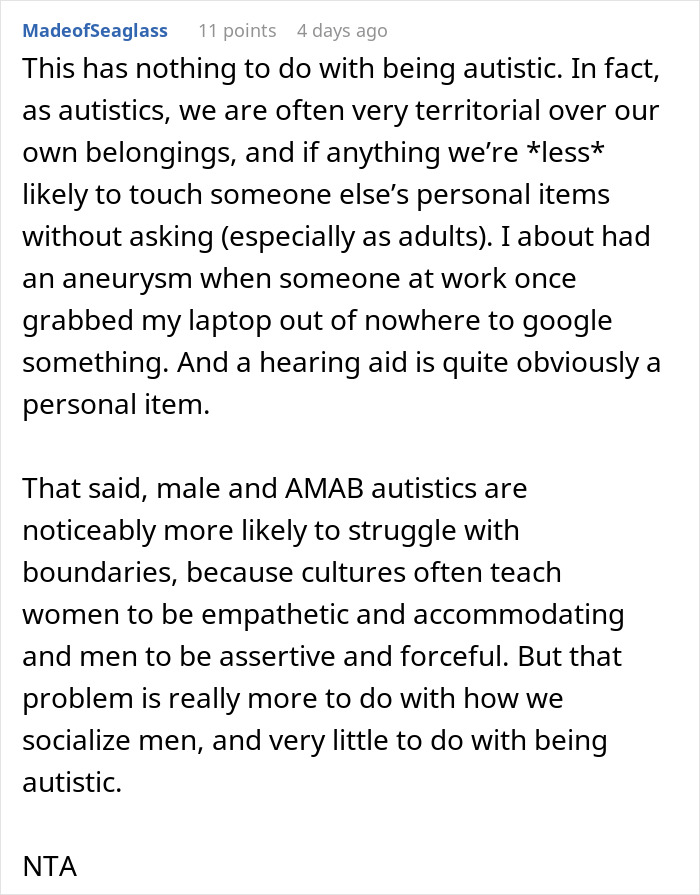
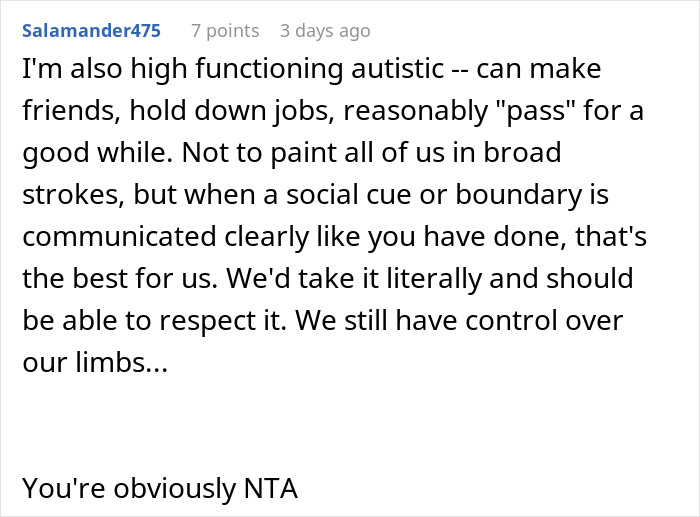
from Bored Panda https://ift.tt/jzdUmWt
via IFTTT source site : boredpanda